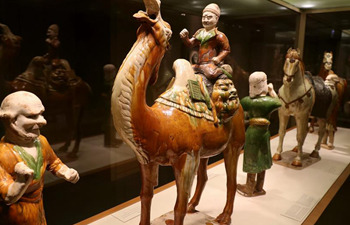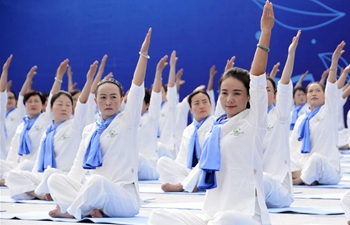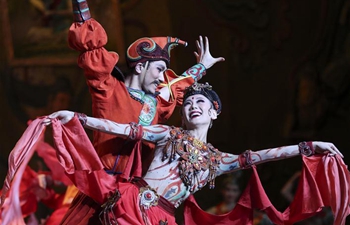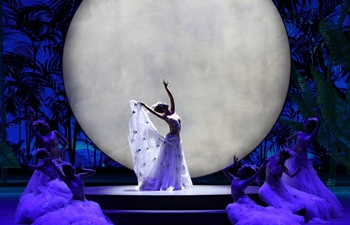Sadeq Zibakalam, professor of political science of Tehran University, receives an interview with Xinhua News Agency in Tehran, capital of Iran, on May 18, 2017. Mass participation of the Iranians in Friday's presidential vote will bring victory for incumbent President Hassan Rouhani and his reformist supporters, an Iranian political expert told Xinhua on Thursday. (Xinhua/Meng Tao)
TEHRAN, May 18 (Xinhua) -- Mass participation of the Iranians in Friday's presidential vote will bring victory for incumbent President Hassan Rouhani and his reformist supporters, an Iranian political expert told Xinhua on Thursday.
According to the official figures, nearly 56 million Iranians are eligible voters.
"It is estimated that the hardliners vote will be around 10 million, and that of the reformists will be about 15 million. So, 25 million will determinedly take part in the election as they do not need any persuasion," Sadeq Zibakalam, professor of political science of Tehran University, told Xinhua.
Yet nearly 30 million voters do not incline to participate in the election for various reasons, or are still undecided, Zibakalam said, adding that Iran's election history shows most of the undecided voted for reformist candidates at the last moment.
"It means that if President Rouhani can persuade the undecided, he will have a huge success, because at this moment he has at least 15 million votes, and if he can persuade 20 percent, or if he manages to attract a third of them, his vote can easily jump above 20 million," he estimated.
"What I am really trying to say is that the result of tomorrow's election would not be decided by Rouhani's supporters or those of the hardliners; it would be decided by the people who are undecided and will go to the polling stations at the last minute," the professor noted.
In recent days, Iran's political landscape has been dramatically polarized over the bitter rhetoric of rival candidates ahead of the Friday presidential race.
The conservative camp, led by the cleric Ebrahim Raisi, criticizes Rouhani's "inefficient" economic policies over the past four years, while Rouhani and his reformist fans accuse the conservatives of "retarding country's political and social development" and bringing hardships back on Iranians.
Iranian reformist leaders, including former president Mohammad Khatami, have unanimously voiced their support for Rouhani.
Earlier, Mohammad Reza Aref, head of the Hope parliamentary group, also announced that the policy-making council of the reformist movement would support Rouhani.
In his recent campaigns, Rouhani has persistently called on his supporters to persuade whoever they know to go to the ballot boxes on Friday.
Mass turnout in the election will disappoint his rivals and secure victory for him, Rouhani has said.
It is why Rouhani's slogans have been radicalized recently during his campaign, as the Iranians can see more of reform-oriented slogans and of praises for the reformist leaders, according to Zibakalam.
"Rouhani is hopeful to attract the undecided because they are not basically very religious, they are not very much the supporters of the Islamic establishment; otherwise they need no persuasion," he said.
"Therefore, if anyone can offer attractive slogans on human rights, women equality, more press freedom and social freedom, he can attract the undecided and their support. That's what President Rouhani is doing now," the professor pointed out.


















